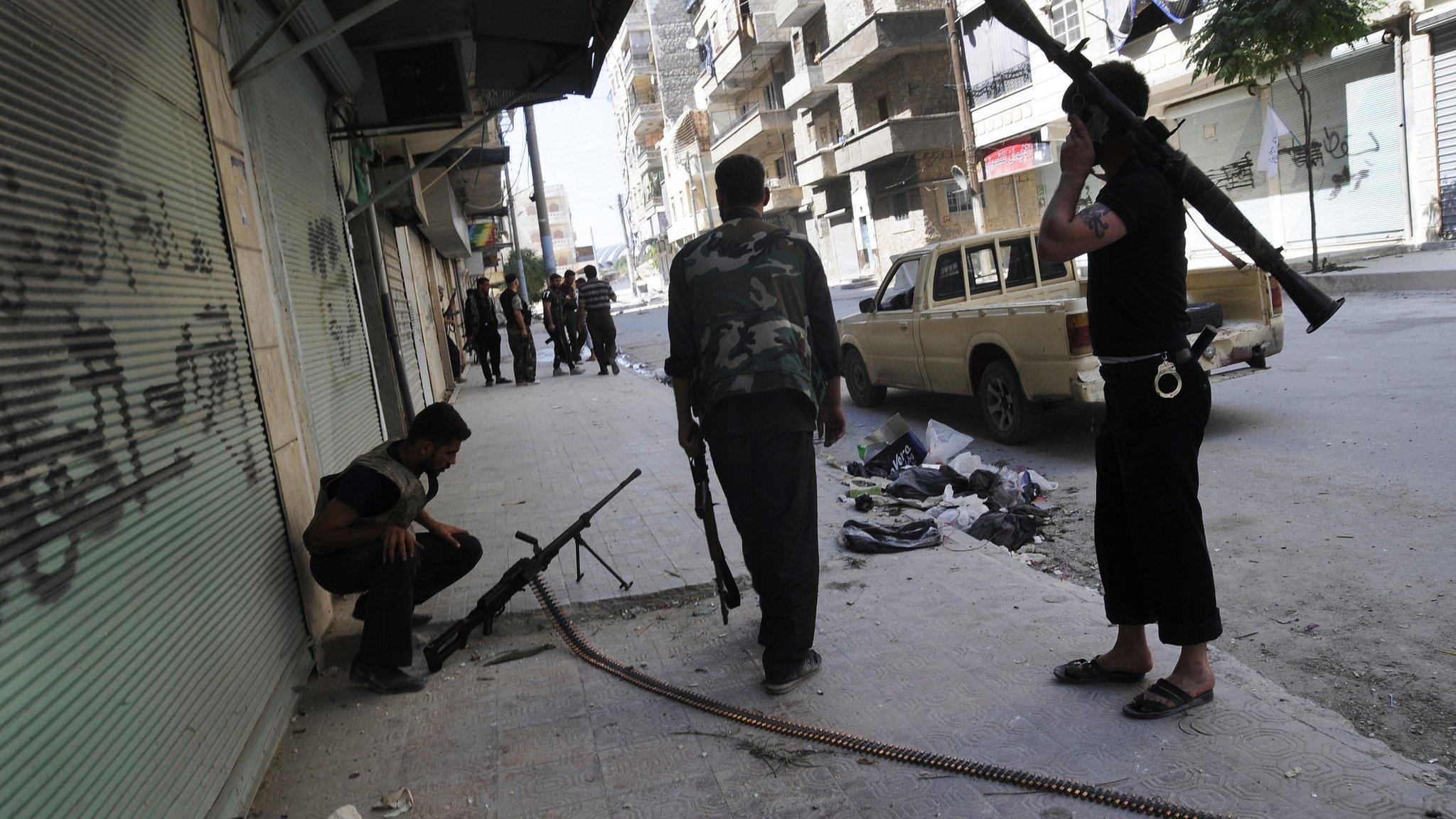UK Syria fighters: Details continue to emerge
- Published
This footage purports to show Reyaad Khan (c) Nasser Muthana (r) from Wales
Details are emerging of the British Muslims who appear in an apparent recruitment video for jihadists in Iraq and Syria.
Two of the men are Nasser Muthana and Reyaad Khan, both 20 and from Cardiff.
The BBC has learned a third Briton in the video is from Aberdeen, where he has been named locally as Raqib.
The video, which cannot be verified, was posted by online accounts linked to militants from the Islamic State of Iraq and the Levant (Isis).
Isis has a presence in Syria and is engaged in fierce fighting with Iraqi government forces.
'Betrayed Britain'
In the video Reyaad Khan, who went to Cantonian High School and St David's Catholic College in Cardiff, is seen holding a gun and sitting next to his friend Nasser Muthana.
Nasser Muthana - who has been offered places to study medicine by four universities - appears in the footage, using the name Abu Muthanna al-Yemen and urging others to fight in Syria and Iraq.
His father, Ahmed Muthana, said his son - who he described as quiet, well-educated and intelligent - had left the UK to fight in Syria in November.
Mr Muthana said he was "heartbroken".
"I don't think that's Nasser talking, it's someone else is teaching him to talk like this because the attitude of Nasser is 100% completely different," he said.
He also told the BBC that his 17-year-old son Aseel had travelled to the country in February.
The electronics engineer, who has two other sons, aged 23 and 10, said police took computers and mobile phones from the family home in Butetown, Cardiff, after he disappeared.
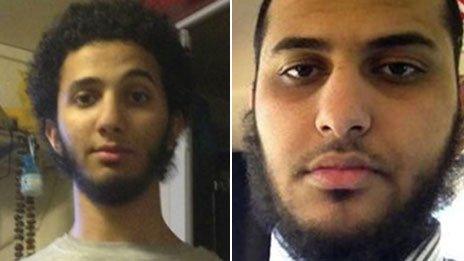
Aseel Muthana (left) and his older brother Nasser (right)
"They have never told us if they found anything on them," he said,
"But when I saw my sons on their computers they would be watching films or wrestling which they were very interested in."
His sons had "betrayed their family and betrayed their country which is Britain" and he feared they would "come back to me in a coffin", he added.
Meanwhile, the mother of Reyaad Khan said she believed her son had been brainwashed and appealed for him to come home.
"Reyaad, please come back home," she told Sky News.
"I'm dying for you. You're my only son. Please come home, Reyaad. Please send me son back home. He's my one and only son. I and my family need him back."
She added that she was "absolutely shocked and devastated".
Her son's Facebook page revealed that he had fairly typical interests for a young man of his age, including computer games, Chelsea football club and his family's new pet kitten.
However, it also shows that in 2012 he became angry about an online video which lampooned Islam and the Prophet Muhammad.
The man from Aberdeen, identified in the apparent Isis video as Brother Abu Bara' al Hindi, was born in Bangladesh but grew up in Scotland, the BBC has learned.
The news has stunned people in Aberdeen, as James Cook reports
One former acquaintance spoke of his shock at seeing the man sitting with other self-declared jihadists, holding a gun, and urging other people from the West to take part in jihad.
The former acquaintance, who does not want to be named for fear of retribution, said the man had regularly been in trouble as a young teenager.
"I was shocked," he told the BBC, adding "it seemed utterly mad".

Islamic State of Iraq and the Levant (Isis)
In 60 seconds: What does Islamic State want?
Isis grew out of an al-Qaeda-linked organisation in Iraq
Estimated 10,000 fighters in Iraq and Syria
Joined in its offensives by other Sunni militant groups, including Saddam-era officers and soldiers, and disaffected Sunni tribal fighters
Exploits standoff between Iraqi government and the minority Sunni Arab community, which complains that Shia Prime Minister Nouri Maliki is monopolising power
Led by Abu Bakr al-Baghdadi, an obscure figure regarded as a battlefield commander and tactician

Sheikh Zane Abdo, from South Wales Islamic Centre, says it is "quite obvious" there is a problem with extremist views in Cardiff
Zane Abdo, imam of the South Wales Islamic Centre, said he knew the families of both Cardiff men that appeared in the video, but the men didn't attend his classes or sermons.
"They went though a phase of practising their faith a lot more outwardly, but they were very normal boys," he said.
He said he believed the men had been groomed.
"These are young men who are very sincere, they want to do something good. But you can be sincere and you can be sincerely deluded in what you want to do, and they have been groomed to think a particular way."
The imam also told the BBC he had spoken about them in his sermons.
"I spoke about the older one going abroad in a sermon, seven months before the media heard anything, saying it was wrong. When the younger one went, I myself gave a more explicit sermon based on scriptures, of why this is wrong," he said.
Have you been affected by the issues raised in this story? You can send us your experiences by emailing haveyoursay@bbc.co.uk, external using the subject line "Isis".
- Published22 June 2014

- Published22 June 2014
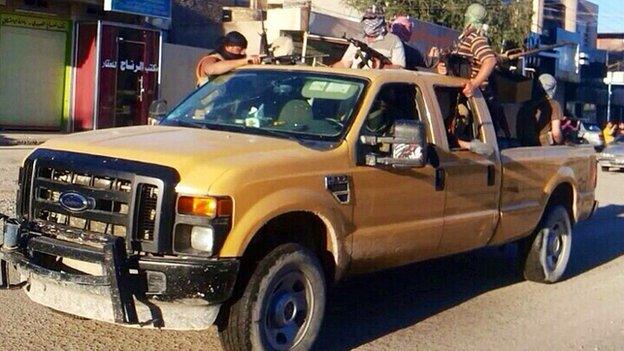
- Published21 June 2014
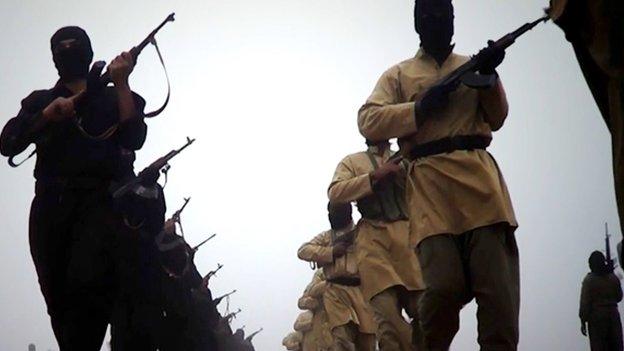
- Published21 June 2014

- Published20 June 2014

- Published2 August 2014
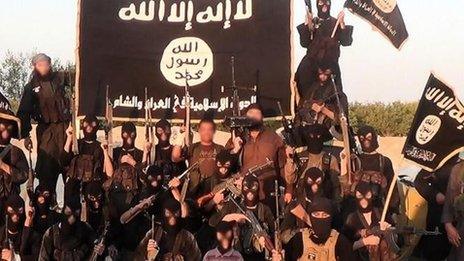
- Published24 April 2014
- Published24 April 2014
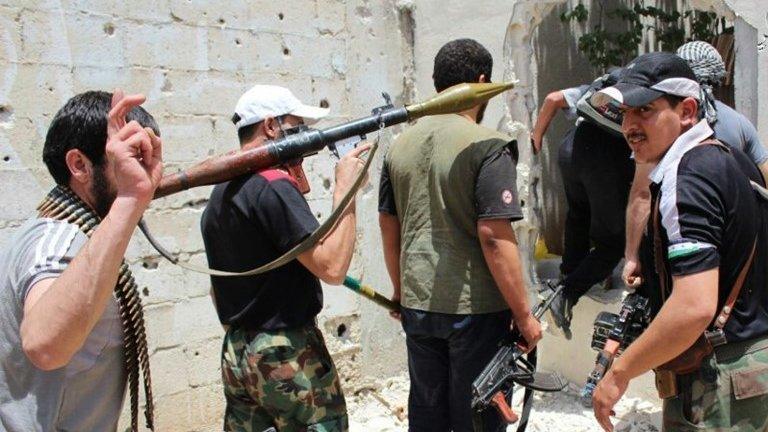
- Published24 December 2013
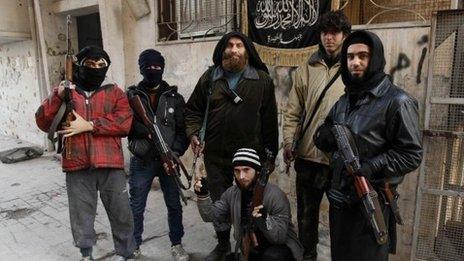
- Published24 April 2013
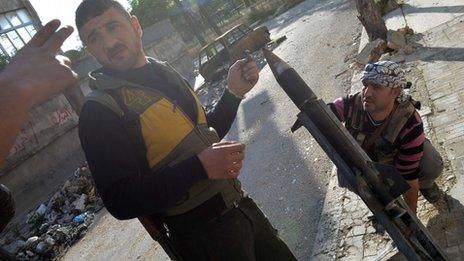
- Published24 April 2013
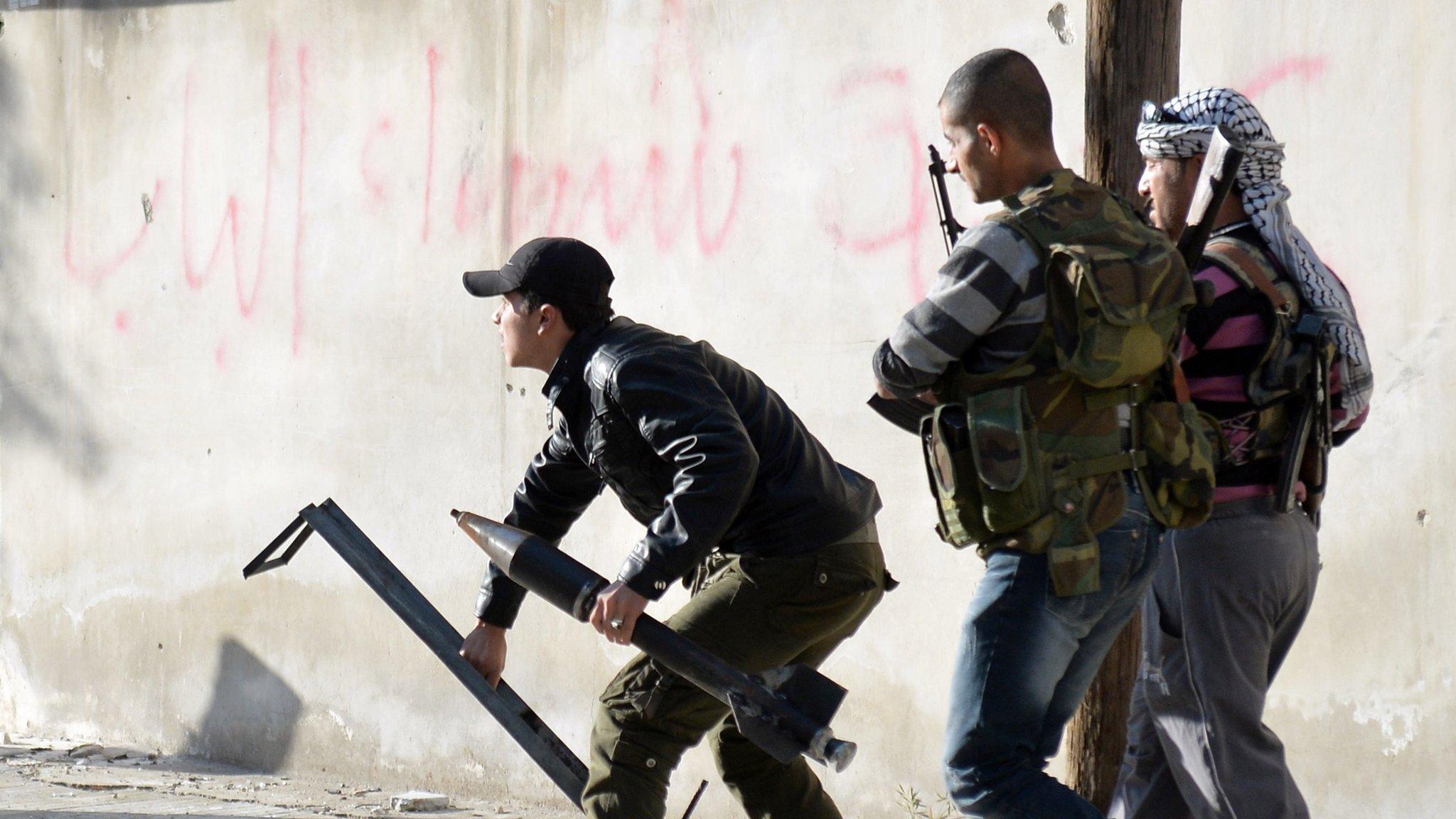
- Published16 August 2012
